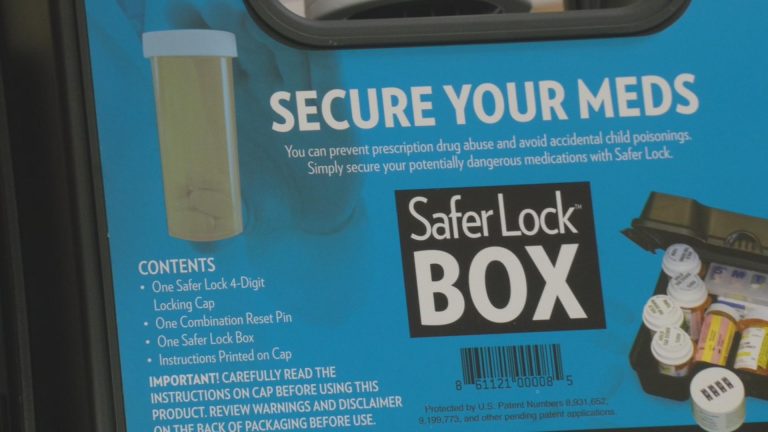
Nebraska Tops List as America’s Most Relaxed State | Image Source: ruralradio.com
LINCOLN, Nebraska, March 25, 2025 – As stress levels in the United States continue to rise in the midst of economic uncertainty, political division and health concerns, a recent WalletHub study has come to a surprising conclusion: Nebraska is the least stressed state in the country. The Personal Finance Web site evaluated the 50 states using 40 stress-related measures, including working hours, financial burdens, family dynamics and health problems, to produce their full report, “Increasingly fewer affected states of 2025”
While many Americans face daily tensions ranging from rising credit card debt to long working days and rising child care costs, the state of Cornhusker has become a more aberrant country. Nebraska took 50th place in total stress, indicating that residents are experiencing significantly lower levels of tension than the rest of the country. The state scored 40 points or less in the four main categories of stress: work-related stress, money-related stress, family-related stress and health and safety-related stress, according to WalletHub.
“There are many small ways to manage stress, stay active and participate in leisure to take a job vacation and get help from a mental health professional,” said WalletHub Chip Lupo analyst. “What many people don’t realize, however, is that changing the location can also be a great stress reducer.”
Lupo noted that states with lower crime rates, affordable health care, and economic stability often correlate with lower stress levels.
What makes Nebraska less stressful than other states?
The results of the study show that Nebraska exceeds other states in multiple areas of stress reduction. The average number of hours worked per week is significantly lower in Nebraska than in many other countries. Coastal states, giving residents more time to rest, recharge and spend with the family. In addition, the State has relatively affordable housing, lower unemployment rates and shorter communications, which helps to strengthen control over daily life.
Another key ingredient in Nebraska’s quiet environment can be in its health infrastructure. The State has relatively high rates of adults with sufficient sleep and low rates of adults who report poor mental health. Access to affordable medical visits and general safety, guaranteed by crime statistics and emergency response services, have also played a role in their classification of stress.
“Life in Nebraska is changing at a different pace,” said Hannah Morse, a resident and teacher at Lincoln. “Of course, we care about accounts and work like others, but we also appreciate the quiet moments. You don’t feel that pressure to run around somewhere.”
How’s your state rank?
Portfolio Central group stressors in four categories:
- Work-Related Stress: including average hours worked, job security, and commute times
- Money-Related Stress: including credit scores, bankruptcy rates, and cost of living
- Family-Related Stress: such as childcare expenses and divorce rates
- Health & Safety-Related Stress: including access to healthcare, suicide rates, and violent crime
While Nebraska has won the best points for serenity, other states have not been so lucky. According to data, New Mexico was the most stressed state in the United States, followed closely by Nevada and Louisiana. Each of these states had high levels in multiple categories of stress, particularly in money and health-related stress.
Why is Louisiana the third most stressed state?
The high level of stress in Louisiana, according to WalletHub, is largely due to financial instability and mental health problems. With the second highest poverty rate in the country and one of the lowest average credit rates (675), many residents of Louisiana face limited financial mobility. This makes it more difficult to obtain affordable loans or debt avoidance cycles.
In completing the problem, Lupo explained that about 12% of Louisiana adults avoided consulting a physician last year because of prohibitive costs. “Louisiana is one of the ten worst states for the adult part reporting mental health and the part diagnosed with depression”
he noted, reinforcing the connection between financial strain and mental well-being.
Furthermore, high crime rates and poor infrastructure in some parts of the state add to residents’ concerns, creating an aggravating effect that can make daily life more expensive.
Is Montana a stressful state to live in?
Interestingly, Montana landed near the centre of the 21st package in the general classification of constraints. He is ranked 12th in health and safety stress – most of the category – but he is better at work and family stress, where he was 30. For many Montanans, the open sky, the mountains and the slowest pace of life dampen the bites of modern stressors.
However, residents like Bozeman’s native Chris Ellis have mixed feelings. “It is true that Montana offers peace and space, but does not underestimate the challenges here”
he said, citing high property prices and seasonal job instability as key concerns. “Living in a postcard isn’t always easy.”
The study reminds readers that although natural beauty can calm the soul, it may not be sufficient to compensate for structural stressors such as lack of access to medical care or financial pressure. Montana’s nuanced placement shows that stress levels are not just about the landscape, but about politics, community and access.
What fuels stress across the country?
According to WalletHub and other national surveys, Americans feel heat for many reasons. Almost 77% of adults report being stressed by the country’s future. Between an imminent recession, persistent inflation and a polarized policy, it is not surprising that mental fatigue is increasing. At a more personal level, job insecurity, higher living costs and strained family relationships exceed the list of common stressors.
In this context, the WalletHub study offers more than just rankings: it provides a mirror. By revealing which states are fighting and prospering, the report highlights the importance of local policies that promote well-being. Increased mental health resources, affordable medical care, fair wages and community support systems can make a real difference by reducing stress levels across the population.
Can you really move to reduce your stress?
In a world where stress often feels incapable, Lupo’s comment on resettlement may seem extreme, but there is the truth in it. Although not everyone can travel to Nebraska, understanding how the environment affects well-being is valuable. Living in a state where the economy is healthier, crime rates are lower and health is better can significantly reduce chronic stress, suggests research.
However, experts caution against the idea that geography is a silver bullet. Mental health professionals stress the importance of strengthening internal resilience, regardless of postal code. This includes care practice, seeking professional assistance as needed, and maintaining strong social ties. However, if external conditions in the current state amplify stress, then resettlement could be considered, if possible.
“It’s not about getting away from your problems,” said Omaha’s psychologist, Dr. Laura Tran. It’s about giving you the best chance to thrive in an environment that promotes your mental health
As the calendar moves toward April, also known as Stress Awareness Month, WalletHub’s report is both timely and instructive. It invites individuals and decision makers to examine the situation as a whole. Where we live, how we live, and what resources we have access to the immense importance in shaping our daily peace of mind.
So, if you’re planning a movement, if you’re insisting on improving health in your condition, or if you’re just trying to find your own peace in the midst of chaos, let the Nebraska ranking serve as a reminder: a less stressed life is not just to work less - it’s about living better.






